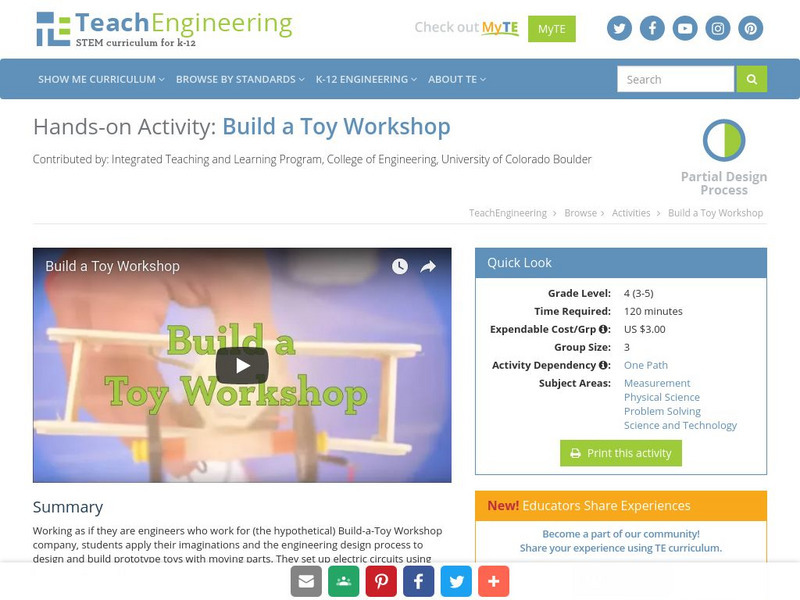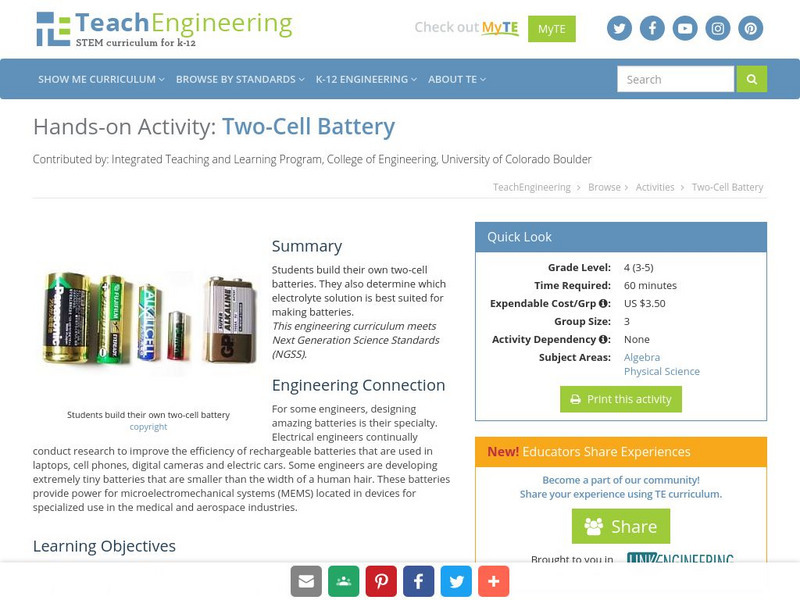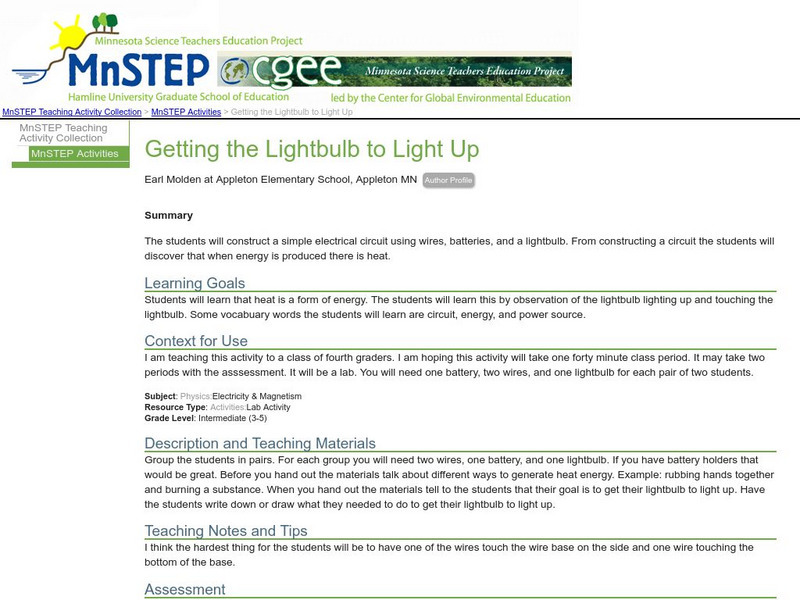Hi, what do you want to do?
TeachEngineering
Teach Engineering: Build a Toy Workshop
Working as if they are engineers who work for (the hypothetical) Build-a-Toy Workshop company, students apply their imaginations and the engineering design process to design and build prototype toys with moving parts. They set up...
Physics Classroom
The Physics Classroom: Resistance
An electron traveling through the wires and loads of the external circuit encounters resistance. In this tutorial, the concept of resistance is introduced. For an electron, the journey from terminal to terminal is not a direct route....
National High Magnetic Field Laboratory
Magnet Academy: Jack Kilby
The integrated circuit fueled the rise of microelectronics in the latter half of the twentieth century and paved the way for the Information Age. An American engineer, Jack Kilby, invented the integrated circuit in 1958, shortly after he...
Khan Academy
Khan Academy: Kirchhoff's Loop Rule Review
Review the key terms and skills related to Kirchhoff's loop rule, including how to determine the electric potential difference across a component.
National High Magnetic Field Laboratory
Magnet Academy: Jean Charles Athanase Peltier (1785 1845)
Although he didn't start studying physics until he retired from the clock-making business at age 30, French native Jean Peltier made immense contributions to science that still reverberate today. Even with the primitive tools available...
Khan Academy
Khan Academy: Kirchhoff's Junction Rule Review
Review the key terms and skills related to Kirchhoff's junction rule.
Nobel Media AB
The Nobel Prize: The Nobel Prize in Physics 1905
This Nobel E-Museum website commemorates the work of Philipp von Lenard and his Nobel prize achievement. This detailed resource includes a biography, Lenard's Nobel Lecture, and the "The Nobel Prize in Physics 1905 Presentation Speech."
PBS
Pbs Teachers: Saltwater Tester
Explore circuits and the flow of electricity. Create a saltwater tester using a battery and electrical buzzer.
Science Struck
Science Struck: Lemon Battery Experiment
In this step-by-step experiment, you will learn how to make a battery using four lemons and use it to light an LED bulb.
Science and Mathematics Initiative for Learning Enhancement (SMILE)
Smile: Electrochemistry
A teacher lesson plan which could be easily converted into an idea for a student project or presentation. This page describes activities in which the interconversion of chemical and electrical energy are investigated. Complete activity...
Cosmo Learning
Cosmo Learning: Power System Analysis
A collection of video lectures for a power system analysis e-learning course. Course covers topics like transmission line capacitance, transformer model, and power system stability.
Creative Science Centre
Creative Science Centre: Mini Light Beam Receiver
A very simple device to convert light into sound can be made by wiring a solar cell directly to headphones (or an earpiece). The solar cell converts light into electricity and the headphones convert electricity into sound. The limitation...
TED Talks
Ted: Ted Ed: Can You Solve the Jail Break Riddle?
Your timing made you and your partner infamous bank robbers. Now, you need to use that timing to break out of jail. Your partner is about to flash you a signal, and exactly 45 seconds later the electric fence circuit will short out. Then...
Curated OER
Science Kids: Science Images: Electricity Circuit Diagram
This basic electricity circuit diagram shows a resistor and ammeter in series, a voltmeter in parallel and a switch with a cell for charging purposes.
TeachEngineering
Teach Engineering: Two Cell Battery
In this hands-on activity, students build their own two-cell battery. They also determine which electrolyte solution is best suited for making a battery.
Science Education Resource Center at Carleton College
Serc: Getting the Lightbulb to Light Up
Learners construct a simple electrical circuit using wires, batteries, and a lightbulb. From constructing a circuit the students will discover that when energy is produced there is heat.

















